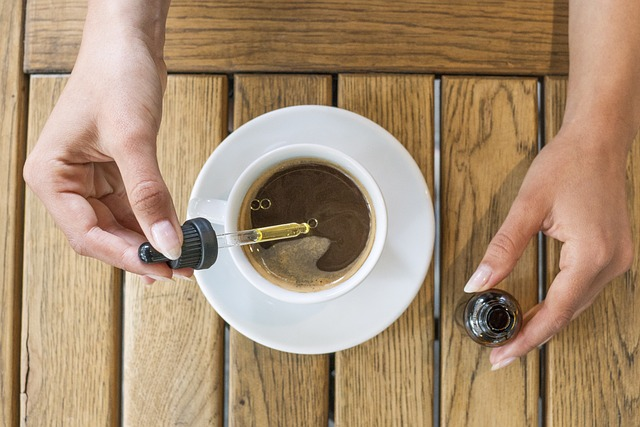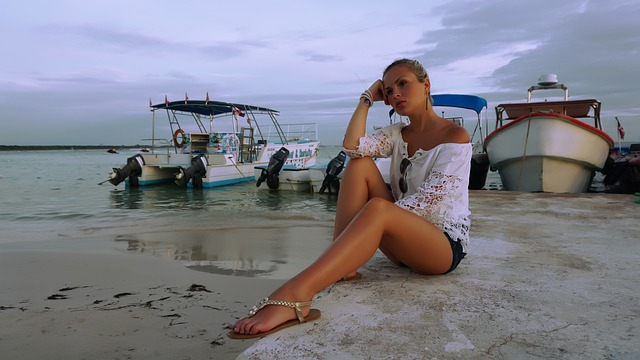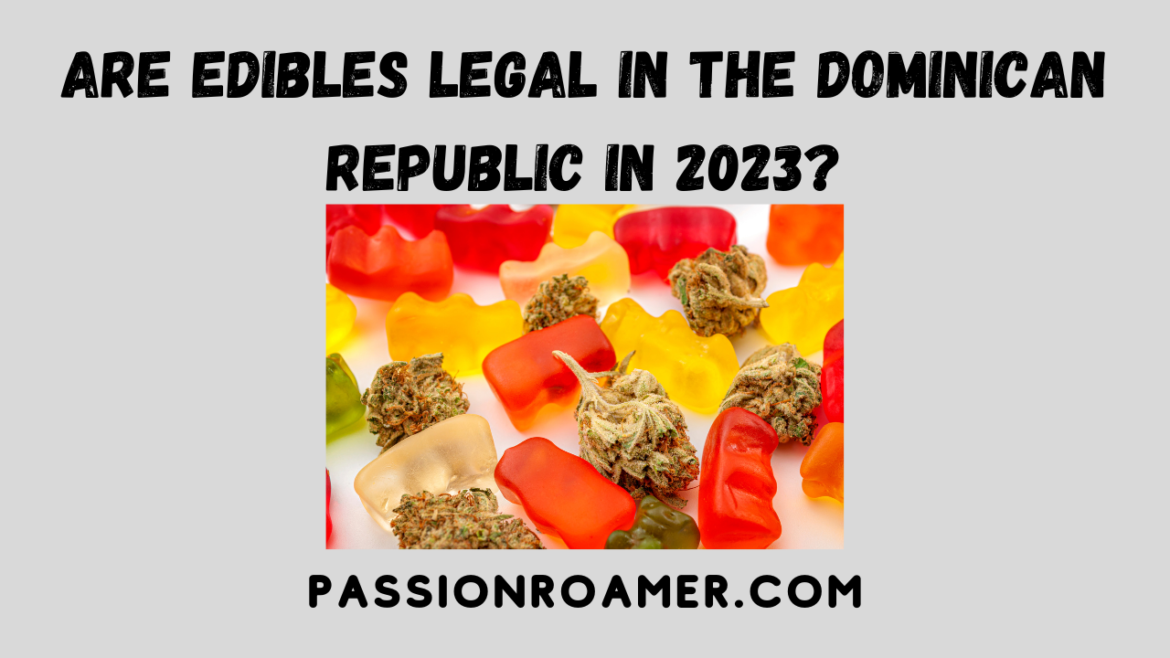The Dominican Republic, known for its beautiful beaches, vibrant culture and all-inclusive resorts with swim-up rooms, has captured the interest of many travelers. But for those seeking to indulge in cannabis-infused edibles while visiting this Caribbean gem, there’s more to the story than meets the eye. In this blog post, we’ll shed light on the fascinating world of edibles in the Dominican Republic, unraveling the complex legal landscape and exploring the potential future of these tantalizing treats in the country, while answering the question, “Are edibles legal in the Dominican Republic?” Let’s find out of edibles are among the things you should avoid in Punta Cana.
Related Content:
From the current legality of edibles to the consequences for tourists attempting to bring them into the country, we’ll provide an in-depth look at the Dominican Republic’s stance on this controversial topic. Get ready to embark on a journey that will uncover the intricacies of edibles in the Dominican Republic and reveal potential alternatives for those seeking relief from their ailments.
Dominican Republic’s Stance on the Legal Status of Edibles

In the Dominican Republic, the use and possession of cannabis-infused edibles are strictly prohibited, with harsh penalties in place for those who defy the law. The country’s approach to edibles can be divided into three distinct legal categories depending on: possession, selling and distributing, and importing.
Let’s dive into each of these categories to better understand the legal landscape surrounding edibles in the Dominican Republic.
Edibles and Possession
Despite the growing trend of cannabis legalization around the world, the Dominican Republic maintains a firm stance against cannabis in all its forms, including edibles. Possessing any amount of edibles can lead to incarceration, jail time and a financial penalty. The severity of the penalties depends on the amount of controlled substances found and the person’s previous criminal record.
The Dominican Republic’s drug laws categorize possession into three legal categories, with penalties corresponding to the amount of drugs found. Possessing a lesser amount of drugs for personal use may result in a lesser penalty, while possessing a larger amount can lead to being considered a trafficker, with much harsher consequences.
Selling and Distributing Edibles
Selling and distributing edibles in the Dominican Republic is considered trafficking, a crime that carries severe repercussions. Those found guilty of trafficking can face imprisonment for a period of five to twenty years, along with a fine equivalent to the value of the seized controlled drugs, which is not less than RD$50,000.
The Dominican Republic’s drug laws make no distinction between selling and distributing edibles, as both acts are considered trafficking. This means that even if someone is caught sharing edibles with friends, they can still be charged under the same category legally and treated as the same type of punishable offense as someone selling them for profit.
Importing Edibles
When it comes to bringing edibles into the Dominican Republic, travelers should think twice. Importing edibles into the country is strictly prohibited. While there may be potential for changes to the law in the future, as of 2023, those caught attempting to import edibles risk facing severe legal consequences.
Medical Use of Edibles in the Dominican Republic

While many countries have begun to recognize the medicinal benefits of cannabis and have implemented medical marijuana programs, the Dominican Republic has yet to follow suit. Medical marijuana remains illegal in the country, and access to medical cannabis edibles is severely limited.
For tourists traveling to the Dominican Republic, it’s crucial to understand the implications of the country’s strict stance on medical marijuana and edibles. As of now, the Dominican Republican has yet to legalize medical marijuana.
Medical Marijuana Laws
Medical marijuana is not recognized as a medicine in the Dominican Republic and remains illegal. The country has no plans to legalize it, even for medicinal purposes. This means that those seeking relief through medical marijuana will not find any legal avenues to access it within the Dominican Republic’s borders.
The future prospects for medical marijuana legalization in the Dominican Republic are uncertain. With the political landscape constantly in flux, it’s difficult to accurately predict if or when the country will amend its legislation to allow the use of marijuana for medical purposes.
Access to Medical Edibles
Given the illegal status of medical marijuana in the Dominican Republic, access to medical edibles is virtually nonexistent. This means that both locals and tourists cannot rely on medical marijuana or edibles to alleviate their ailments.
For tourists visiting the Dominican Republic, it’s important to understand that they are not permitted to access medical edibles within the country. Additionally, bringing medical edibles into the country is illegal, and those caught attempting to do so can face severe legal consequences.
Tourists and Medical Edibles
Tourists should be aware that the Dominican Republic is not lenient when it comes to marijuana use. The THC Times advises tourists to avoid using marijuana in the country, stating, “If the temptation of using marijuana on the beach is too strong, it may be advisable to visit a beach in another country”.
Under Dominican Republic law, tourists who attempt to bring marijuana, including medical edibles, into the country can be considered smugglers and face a minimum of five years in prison and a fine of at least RD$250,000 ($4,335). The country’s strict stance on marijuana extends to all forms of the plant, including medical edibles, and tourists should not assume that their medical marijuana is legal in the Dominican Republic.
Legal Alternatives to Edibles

For those seeking relief from various ailments in the Dominican Republic, there are legal alternatives to edibles available. These options include CBD products, traditional medicines, and natural remedies, which can provide symptom relief without breaking the country’s strict drug laws.
CBD Products

Cannabidiol (CBD), a non-psychoactive compound derived from cannabis plants, is considered legal in the Dominican Republic, making CBD products a viable alternative to edibles. While the precise legal status of CBD products in the country remains uncertain, it’s plausible that they are allowed for both medical and recreational purposes.
Passengers are permitted to transport CBD oil in hand luggage or checked luggage, provided that it does not exceed 100 ml and contains no more than 0.3% THC. This means that those seeking relief from various conditions can utilize CBD products without facing legal consequences in the Dominican Republic.
Traditional Medicines

Traditional medicines in the Dominican Republic have been utilized for centuries to treat a variety of ailments. These medicines are composed of natural components, often derived from plants and minerals, and can provide relief for various health issues.
While the legal status of traditional medicines in the Dominican Republic in 2023 is not explicitly known, it is likely that these remedies will continue to be largely unregulated. This means that locals and tourists alike can explore the benefits of traditional medicines without fearing legal repercussions.
Natural Remedies
Natural remedies, which utilize natural ingredients to address various health issues, are another alternative to edibles in the Dominican Republic. These remedies can be used alongside conventional medicines to provide symptom relief and improve overall well-being.
While the legal status of natural remedies in the country is not explicitly clear, their use is generally accepted and poses no legal risks.
Public Opinion and Future Prospects
Public opinion on edibles in the Dominican Republic is mixed, and the political landscape remains uncertain. As we delve into the country’s public sentiment and political situation, it’s important to consider the potential path to legalization, even if the timeline and feasibility of such a change remain unclear.
Public Sentiment

Determining the public sentiment towards edibles in the Dominican Republic is not an easy task, as there is no definitive indication of the general opinion on the matter. However, it’s essential to remember that marijuana, including edibles, remains prohibited in the country for all purposes.
Potential avenues for the legalization of edibles in the Dominican Republic may include lobbying initiatives by citizens and businesses, as well as changes to the legal framework. However, without sufficient data, it’s impossible to make any definitive statements regarding public sentiment toward edibles in the Dominican Republic in 2023.
Political Landscape
The current political landscape in the Dominican Republic with respect to edibles is uncertain. There is potential for legalization in the foreseeable future, but the timeline and feasibility of this are yet to be determined. Possessing, using, and selling cannabis in any form, including edibles, remains illegal in the country.
Given the uncertain future of edibles legalization in the Dominican Republic, it’s crucial for those interested in the topic to stay informed about any changes to the country’s legal landscape. The potential path to legalization is still unclear and will likely depend on shifts in public opinion and political priorities.
Potential Path to Legalization
While the prospect of edibles being legalized in the Dominican Republic remains uncertain, there is potential for change in the future. However, it’s impossible to accurately predict when or if this will occur, given the fluctuating political landscape and the myriad factors that may influence the country’s stance on edibles.
For now, cannabis products and edibles remain strictly prohibited in the country, and those seeking relief through cannabis-infused products must explore alternative options.
Summary
In summary, the Dominican Republic maintains a strict stance on edibles, with their use, possession, and distribution being illegal. Medical marijuana remains unrecognized by the country, and access to medical edibles is severely limited. Tourists should be aware of the potential legal consequences of trying to bring edibles into the Dominican Republic, as well as the alternatives available for those seeking relief from various ailments.
Despite the uncertain future of edibles in the Dominican Republic, the country’s vibrant culture and beautiful landscapes continue to attract visitors from around the world. As we continue to monitor the ever-changing legal landscape surrounding edibles, it’s crucial to stay informed and make responsible choices when seeking relief through cannabis-infused products. After all, knowledge is power, and understanding the intricacies of edibles in the Dominican Republic can help ensure a safe and enjoyable experience for all.
Frequently Asked Questions
Can you bring CBD gummies to the Dominican Republic?
Based on the regulations in place, it is not advisable to bring CBD gummies to Dominican Republic. Travellers should be aware that any cannabis product, including CBD gummies, may incur fines and other various penalties imposed.
What drugs are illegal in the Dominican Republic?
It is a criminal offense to possess, traffic or consume illegal drugs in the Dominican Republic. Thus, cocaine, heroin, ecstasy, fentanyl and all cannabis derivatives are all prohibited substances in the country.
Where in the US are edibles legal?
Edibles are legally available in various states across the United States, including Washington, Oregon, California, Colorado, Michigan, Maine, Massachusetts, Arizona, Alaska, and Nevada. Furthermore, edibles can be purchased legally in Washington D.C.
Additionally, numerous states have pending or proposed legislation to legalize edibles. Consequently, those interested in eating edibles should check their local laws regarding their legality.
Is weed legal in the Dominican Republic?
No, cannabis is illegal in the Dominican Republic. Possession of any quantity of cannabis is a punishable offense under Law 50-88 dealing with narcotics, which was approved by the Congress of the Dominican Republic on May 30, 1988. Tourists bringing marijuana with them can be viewed as smugglers under Dominican Republic law and can face severe penalties, including imprisonment and fines.

